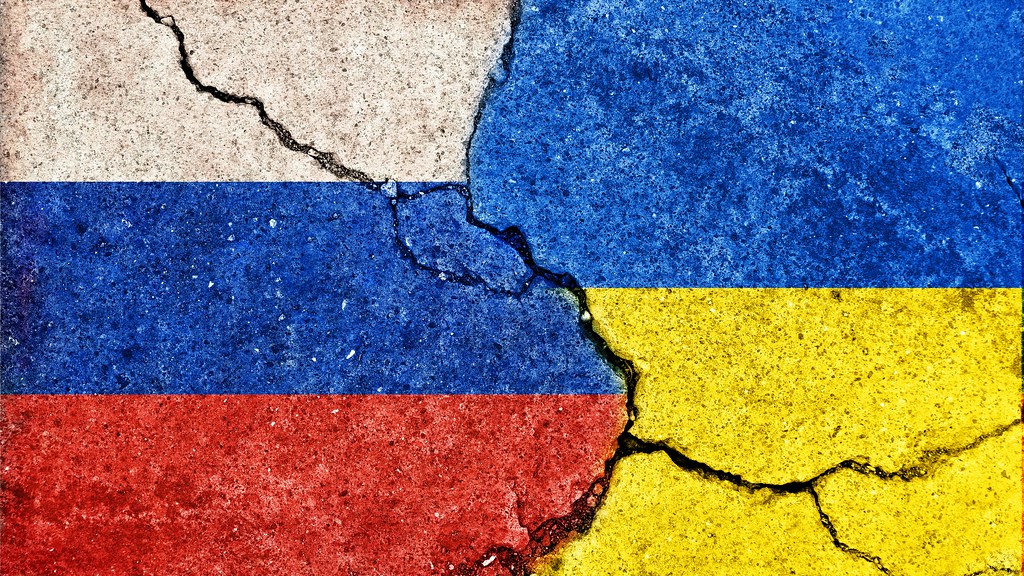4.1 – Nationalism: Core ideas and principles
On Wednesday 5 November, The Times reported on the ongoing tensions in Ukraine over the use of the Russian language. The article describes women dressed in white “disinfection suits” patrolling a Kyiv market, “cleansing” it of Russian-language books. Their campaign, they said, was part of a wider effort to defend Ukraine’s national identity. “The Ukrainian language is a weapon that protects our land,” declared one activist. The image is a powerful one – and it captures the way in which language, more than almost any other symbol, sits at the heart of nationalism.
The conflict in Ukraine is often described as a war of territory and sovereignty, but as the article makes clear, it is also a war of culture. The use of Russian – once widespread across Ukraine – has become politically charged since Moscow’s full-scale invasion in 2022. Kyiv has passed laws requiring public employees to use Ukrainian, banned Russian-language music in public, and even proposed ending Russian’s status as a recognised minority language. For many Ukrainians, abandoning Russian is a patriotic duty; for others, it feels like a denial of personal and cultural reality.
This tension speaks directly to the relationship between nationalism and identity. Nationalism can be defined as the belief that people who share a common identity – rooted in culture, history, and language – should form a self-governing nation. Language, in particular, is one of the most powerful markers of that shared identity. It is both a practical tool of communication
and a symbol of belonging. In the case of Ukraine, language has become a battlefield because it embodies the struggle for self-definition. Under Tsarist and Soviet rule, Ukrainian was actively suppressed; Russian was promoted as the language of power, education, and modernity. Since independence in 1991, and especially since the annexation of Crimea in 2014, Ukrainian leaders have sought to reverse that legacy. Promoting the Ukrainian language is thus not just a cultural policy – it is a political act of decolonisation, reclaiming what was lost under imperial domination.
Political theorists often distinguish between civic nationalism and cultural (or ethnic) nationalism. Civic nationalism defines belonging in terms of shared values and political institutions – for example, the American or French republican models. Cultural nationalism, by contrast, roots national identity in shared heritage, ethnicity, or language. Ukraine’s current debates reveal the tension between these two forms. Many Ukrainians, as the article notes, define their national identity politically: loyalty to the Ukrainian state and opposition to Russian aggression, regardless of the language they speak. Others, including government officials like Olena Ivanovska, argue that true patriotism requires full adoption of the Ukrainian language.
The question, then, is whether language should be a test of loyalty or simply a medium of communication. For nationalists such as Ivanovska, the Russian language carries the weight of centuries of domination. To speak
Russian, she argues, is to remain under the shadow of the oppressor – “first come the Russian language, the Russian ballet and the Russian theatre, and then come the Russian tanks.” From this perspective, linguistic unity is essential to resist external threats.
Yet critics like Dr Anastasia Piliavsky of King’s College London warn that such policies risk alienating those Ukrainians who remain Russian-speaking but deeply loyal to their country. This raises an important analytical point: nationalism can unite, but it can also divide. When national identity becomes tied too tightly to one cultural marker, it may exclude those who do not conform – even if they share the same political aspirations.
Ukraine’s language debate illustrates how nation-building is both cultural and political. Language laws, education policies, and cultural campaigns are all tools by which states construct and defend national identity. They show that nationalism is not static but constantly negotiated – especially under the pressure of war and external aggression.
Ultimately, the Ukrainian case reminds us that nations are built not only through borders and constitutions, but through the words people choose to speak. Language shapes how citizens imagine their community, how they distinguish “us” from “them,” and how they express the meaning of belonging. In Ukraine, the battle for language is a battle for the nation itself.

